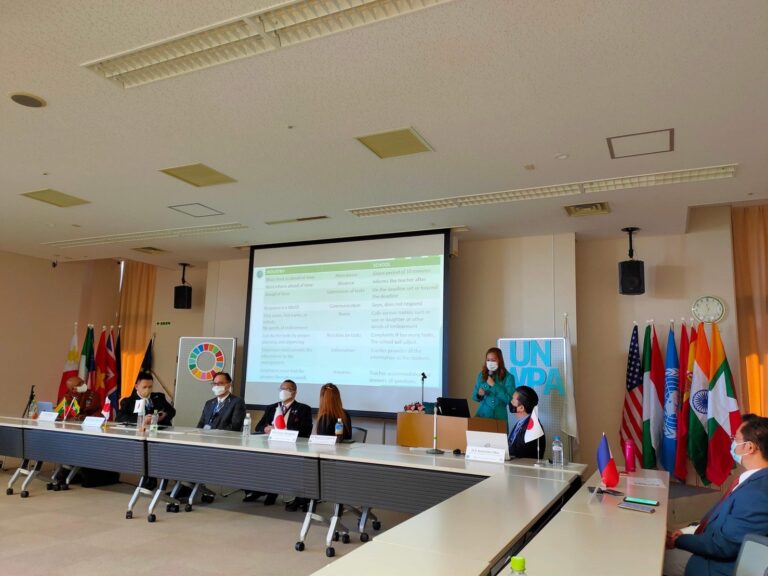Our Role in Youth Empowerment Skills Program
October 20, 2022
by: Ma. Eliza Margarita E. Magkasi, Ph.D.

EFAM Training represented the Philippines at the 2nd International Conference of the United Nation World Peace Association held at Sapporo, Japan with the theme “One Heart for Planet”. The conference was attended by select representatives from 18 different countries due to the restrictions implemented by the country.
I, who was one of the resource speakers and also happens to be the host of the said conference, shared with the attendees the job skills mismatch in the Philippines. I highlighted the source of the gap identified after an interview with EFAM Training’s international company partners in the United Kingdom, United States of America, and Japan; as well as the quick survey results participated by the EFAM trainees. The main source of the gap was the varying interests of the schools’ stakeholders that has to be satisfied.1. Students and Parents.
Students are considered both a customer and a product of a school. Students are their customers for the entire duration that they are studying in school while a product to the industry after their graduation. As a customer, the schools will satisfy the needs of the students as well as their parents. However, in doing so, the schools sacrifice the implementation of the industry standards such as the need for a break if the students ask for it, coming to class late because of the grace period provided by the school, the extension of deadlines to accommodate the requests of the students, family-type relationship or environment instead of a professional environment, and the flow of information from the teacher to the students. As per the partner companies of EFAM Training, the students are spoon-fed and they carry their attitude, standards, and practices in school to the industry which do not match. The students are only exposed to industry standards during their internship. That is why the trainees, based on the survey, are requesting to be given longer hours for internship or immersion, tasks that relate to the industry, and quality over quantity of tasks that would train them to gain the skills required by the industry.
2. School Focusing on Accreditation.
Schools are very busy preparing for accreditations, both local and international because being accredited by various organizations connotes quality education. However, in doing so, the teachers are given additional tasks aside from their usual teaching schedule. The school even foregoes intensive faculty training in the industry for skills updating due to the lack of faculty members who will replace them while they are on leave. With this, the teachers result to theory-based teaching or share outdated practices and software applications. The teachers, who should be transferring their skills to their students, result in providing voluminous tasks which do not relate to the actual industry, as per the trainees. That is why, during their internship, they do not know some of the applications or the standards that the trainees know are different from what is implemented by the company to where they are assigned. There were few teachers who come from the industry. However, the number is not enough to spread the industry standards to the student population.
To address the matter, I sought the assistance of UNWPA members in providing skills training for the teachers because this will not only solve the problem in the Philippines but also in other countries that are experiencing the same issue. The following degree programs will be prioritized in the skills training: Agriculture, Hotel and Restaurant, Information Technology, and Caregiving Services. EFAM Training supports the call of President Ferdinand R. Marcos, Jr. to address the job skills mismatch. We are thankful that Japanese representatives are ready to extend assistance to the country.
